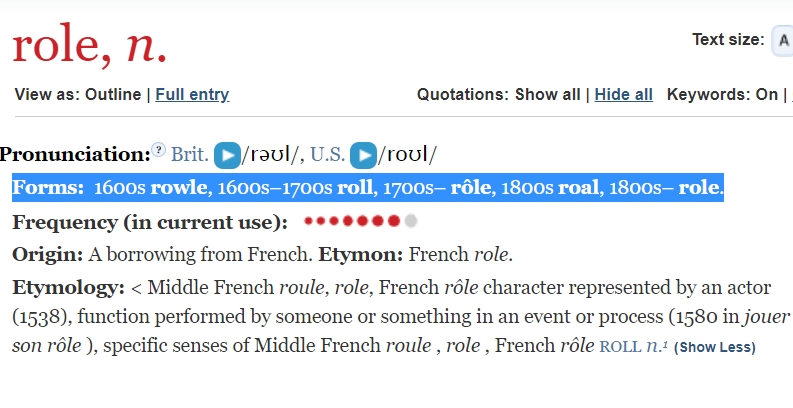A scene from The Canterbury Psalter (12th century)
Blog
Roles
When did the word “role” come to seem like an obvious word to use to describe how the three persons of the Trinity are distinct from each other? I hear it all the time from Christians who are serious about being Biblical in their thinking, but who haven’t had the kind of theological training that would direct them to use more traditional terms (persons in relation, hypostases, etc.). They reach for a word in their current vocabulary whose ordinary usage seems helpful. When they do this, “role” seems self-evident. But when did it start to seem that way?
It’s a hard question to research because it’s a question about popular usage more than about professional theological writing. So I’m going to start this blog post with the earliest instance I’ve run across, and I’ll silently update the post whenever I find better or older examples. (If you know one, tell me on Twitter or using this site’s contact form.)
But first, I’d like to point out that the word role is a strange guest in the English language, and for a long time it showed up with a funny hat: rôle. In fact, the OED shows it sliding around into all sorts of possible spellings, as if it couldn’t quite get comfortable in English: rowle, roll, roal, and rôle.

It also seems to have made its way into sociology via theater: actors play roles on stage; we play roles in our active lives. That’s an obvious analogy for us. Shakespeare knew that all the world’s a stage. But Shakespeare never used the word role to say so, because Shakespeare never used the word role.
Anyway, here’s my opening bid for earliest use of role in the sense of how we can tell the persons of the Trinity apart: R.G. Crawford, “Objections to the Trinity,” EQ 45.4 (Oct.-Dec. 1973): 241-248.
In modem sociological theory the concept of “role” plays an important part. The Church was conscious too of the different roles that the persons played in the operation of the Trinity. Augustine, for example, argued that while each of the Persons has the divine nature in a particular manner, it is correct to attribute to each of them in the external operation of the Godhead, the role which is appropriate to Him in virtue of His origin. Thus the role of the Son as distinct from the Father was being incarnate, suffering and rising again. The role of the Father was to co-operate in bringing about the incarnation, passion and resurrection. Each fulfils the role appropriate to His origin. Hence it was fitting for the Son, in virtue of His relation to the Father, to be made manifest and visible.
What I value in this quotation is that Crawford seems aware that the term is novel and foreign to the tradition. But he immediately goes on to make a little bit of a mess of reading Augustine by using it (and even suggesting that Augustine talked that way). In Crawford’s defense, I will say that he does trace role back to relations of origin. In fact, one of his ways of using “role” is to say that origin is foundational, and “role” arises in a corresponding or appropriate way.
I don’t absolutely object to using new terms in theology, even new terms dating from the dazed and confused 1970s, if they help clarify doctrine. But I think “role” is severely limited in what help it can offer for this doctrine. Is it economic or immanent? If economic, is it nevertheless eternal or prior to salvation history? If immanent, is it different from the relations of origin? Is it being used to distinguish the persons? How does it align with hypostatic differentia or idiomata?
About This Blog

Fred Sanders is a theologian who tried to specialize in the doctrine of the Trinity, but found that everything in Christian life and thought is connected to the triune God.


